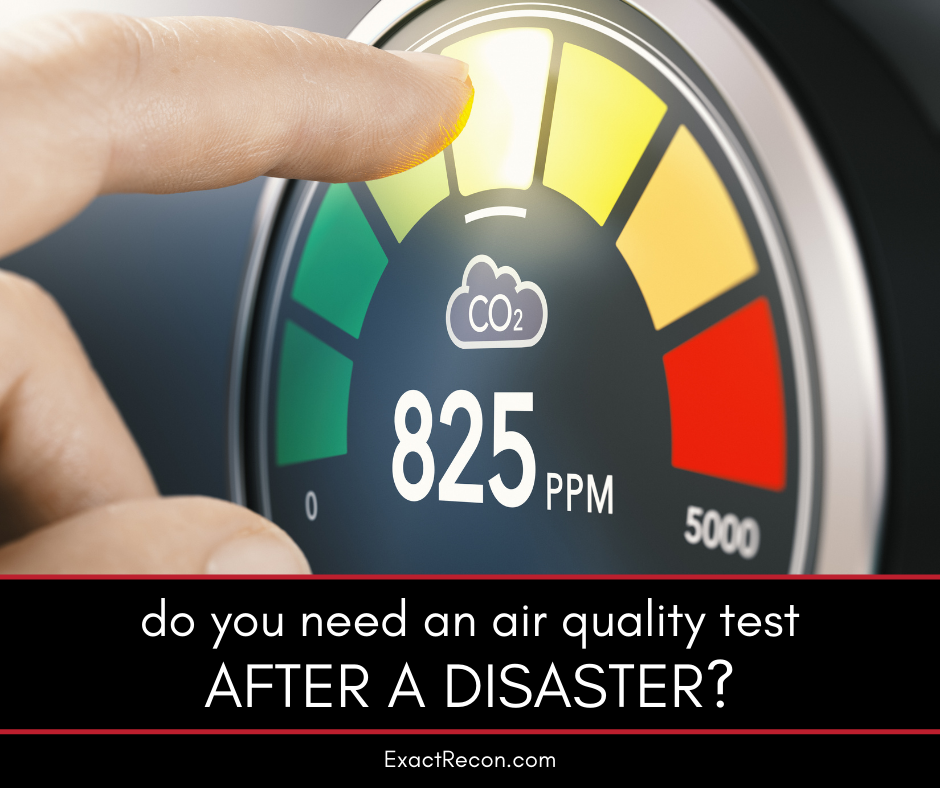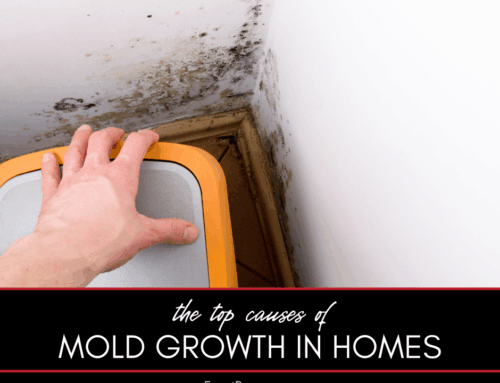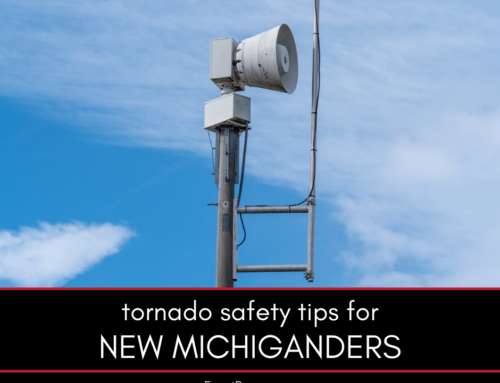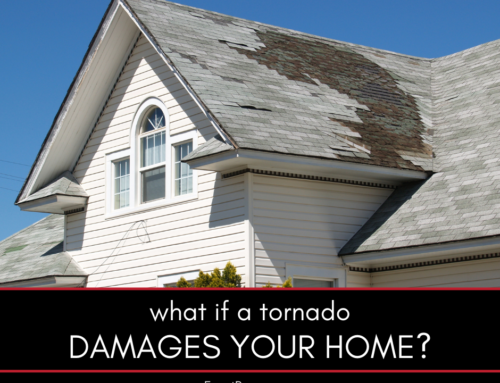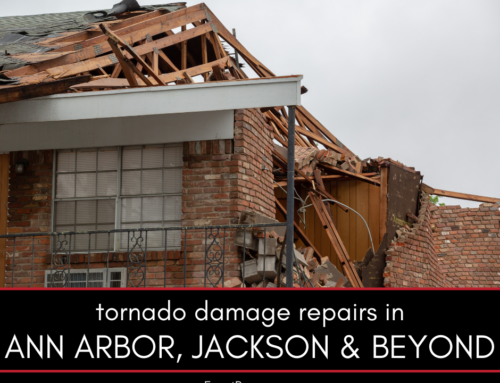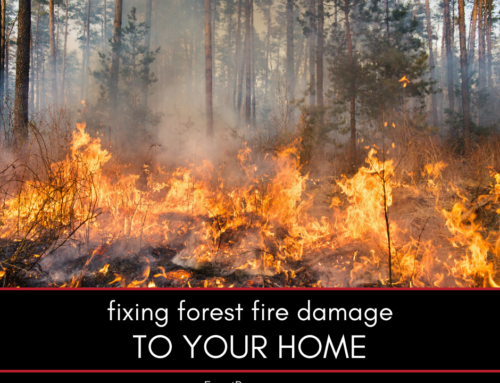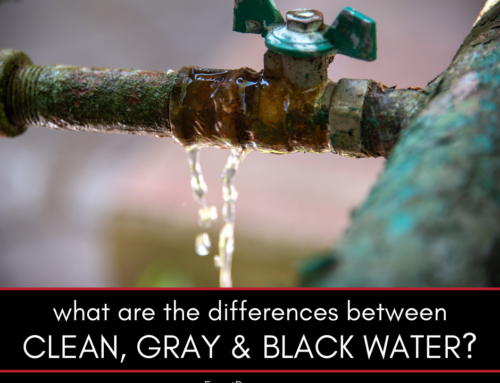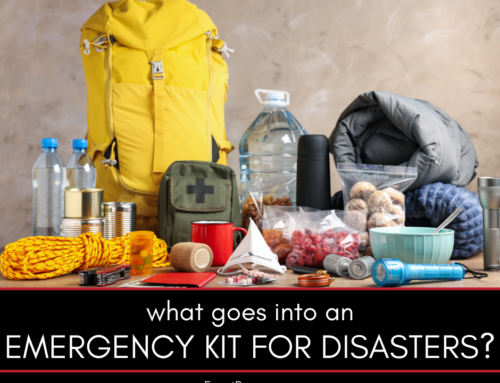Disasters such as fires, floods, and storms can significantly impact your home’s indoor air quality. Beyond visible damage, contaminants like smoke particles, mold spores, and volatile organic compounds (VOCs) can linger in the air, posing risks to your health and safety. This guide explores whether you need a professional air quality test after a disaster and how it can help ensure your home is truly safe to live in.
Do You Need a Professional Air Quality Test After a Disaster?
An air quality test is often essential after a disaster to identify and address hidden dangers in your home. This guide covers:
- How disasters impact indoor air quality
- Common contaminants to look for
- The benefits of professional air quality testing
- When to call Exact Recon for help
Here’s a closer look at each.
How Disasters Impact Indoor Air Quality
Disasters can introduce or amplify airborne contaminants, significantly degrading the air quality in your home. For example:
- Fires: Fires release smoke, soot, and toxic chemicals into the air. Even if the flames are extinguished quickly, these particles can linger, settling into furniture, walls, and HVAC systems.
- Floods: Flooding often leads to mold growth as moisture seeps into walls, floors, and ceilings. Mold spores can become airborne, spreading quickly throughout the home.
- Storms: Storm damage, such as roof leaks or broken windows, can allow water and debris to enter your home, creating an environment for mold and introducing outdoor pollutants.
Even if your home appears clean after a disaster, microscopic particles and harmful gases can persist, making professional air quality testing a critical step in the recovery process.
Common Contaminants to Look For
The specific contaminants present in your home depend on the type of disaster you’ve experienced. Common pollutants include:
- Smoke particles: Microscopic soot and ash from fires can penetrate deep into your lungs and linger in the air for months if not properly removed.
- Mold spores: Mold thrives in damp environments created by floods or leaks. Inhaling mold spores can trigger allergies, asthma, and other respiratory issues.
- VOCs: Fires and water damage can release VOCs from building materials, furniture, and household items. These chemicals can irritate the eyes, nose, and throat, and prolonged exposure may have more serious health effects.
- Dust and debris: Storms and structural damage can introduce dust, dirt, and other particulates into your home, which can exacerbate respiratory problems.
Identifying these contaminants is essential for effective cleanup and ensuring a safe living environment.
The Benefits of Professional Air Quality Testing
While you can take steps to improve air quality on your own, professional testing provides a thorough assessment of hidden dangers. Key benefits include:
- Accurate detection: Professionals use advanced tools to identify specific pollutants and their concentrations, which are often undetectable with DIY methods.
- Comprehensive analysis: Testing evaluates air quality throughout your home, including in hard-to-reach areas like attics, basements, and HVAC systems.
- Tailored solutions: Based on the results, professionals can recommend targeted remediation measures, such as air purification, mold remediation, or deep cleaning.
- Peace of mind: Knowing your home is free of harmful pollutants ensures the health and safety of your family, especially for individuals with allergies, asthma, or other respiratory conditions.
When to Call Exact Recon for Help
If you’ve experienced a disaster and are concerned about your home’s air quality, it’s time to call the experts at Exact Recon. We specialize in air quality testing and disaster restoration, using state-of-the-art equipment to identify and eliminate airborne contaminants.
Our team provides a full range of services, from mold remediation to fire damage restoration and water damage cleanup. We’ll work with you to restore your home to a safe, livable condition, ensuring your family can breathe easy again.
FAQ About Air Quality Testing After a Disaster
Check out these commonly asked questions about air quality testing. If you don’t see your question here, please call our office and we’ll find you the answers you need.
How Soon Should I Test My Home’s Air Quality After a Disaster?
Testing should be done as soon as possible after cleanup begins. Early detection of pollutants allows for targeted remediation and prevents long-term exposure.
Is Air Quality Testing Necessary if There’s No Visible Damage?
Yes, even if your home looks fine, microscopic particles and harmful gases can persist. Testing ensures no hidden dangers remain.
Can Poor Air Quality Cause Health Problems?
Yes, poor air quality can lead to respiratory issues, allergies, headaches, and fatigue. Long-term exposure to certain contaminants may result in more serious health concerns.
How Long Does an Air Quality Test Take?
A professional air quality test typically takes a few hours, depending on the size of your home and the complexity of the assessment.
Does Insurance Cover Air Quality Testing?
Many homeowner’s insurance policies cover air quality testing and remediation after a disaster. Check with your provider to confirm your coverage.
Air quality testing is a crucial step in recovering from a disaster. By identifying and addressing hidden pollutants, you can restore your home to a safe and healthy environment for your family. Trust Exact Recon to guide you through the process with expert care and precision.
Do You Need a Disaster Remediation Expert in Washtenaw County or Jackson County?
If your home has already been damaged, we can help. Check out our services and get a free disaster remediation quote today. We offer:
- Water damage restoration
- Fire damage restoration
- Mold removal and remediation
- Fire and smoke restoration
- Sewer cleanup and disinfecting
- Reconstruction
- Wind and storm damage repair


